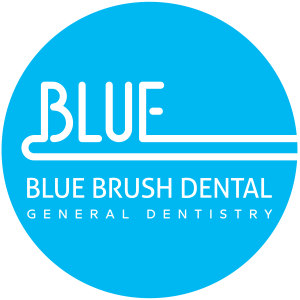If you’re facing dental health challenges, understanding the signs that you might need dentures is crucial. Dentures have evolved significantly since their inception around 2500 BC, offering solutions for various oral health issues. Proper guidance from a denture dentist will help you make informed decisions for your oral health.
Indications that may signal a need for dentures include persistent toothaches, which may indicate severe decay. In such cases, considering advanced solutions like Denture Implants in Irvine can be beneficial. Additionally, red or bleeding gums, digestion issues, loose teeth due to advanced gum disease, and difficulties in speaking or eating are potential indicators, with dentures often offering a solution to these oral health challenges
What Are Dentures?
A denture is a custom-fitted dental device that you can take out. It’s made to fill the gaps from lost teeth and the areas around them.
Dentures are shaped to match the person’s mouth, which helps the face muscles, makes it easier to chew and speak, and enhances the look of the smile.
Guess what? They aren’t a recent invention – they’ve been around for thousands of years, and their design and functionality have remarkably progressed.
Nowadays, dentures come in two kinds: full and partial dentures. Full dentures are used to replace teeth. For just a few missing teeth, partial dentures are designed to fit into those particular spaces.
Reasons for Needing Dentures
You might need dentures for many reasons, including age-related oral health decay, accidents, or certain illnesses. Dentures are not only to replace missing teeth, but they also fill out the structure of the face and enhance the quality of life.
Here’s a more specific breakdown of why you need dentures:
- Age-related Oral Health Decay: As we age, our teeth can deteriorate. They might weaken, become more prone to cavities, or even fall out due to various conditions, including gum disease. In such cases, full or partial dentures could help restore your oral health.
- Accidents or Trauma: Sometimes, unexpected events lead to sudden tooth loss. It could be a sports injury, a fall, or any accident that impacts your mouth. When this happens, dentures might be the best way forward to restore your teeth and confidence.
- Certain Illnesses: Some diseases or medical treatments can affect oral health. Medications, treatments like chemotherapy, or conditions like diabetes can contribute to tooth loss. In these instances, dentures serve as an effective solution to maintain oral functionality.
Signs You Need Dentures
If you’ve ever wondered if you might need dentures, there are several key symptoms to keep an eye on. These symptoms, which might persist or appear unexpectedly, could indicate the need for advanced solutions like Denture Implants in Irvine to address oral health concerns effectively.
Ignoring them is not a wise strategy; instead, paying attention can prevent a minor issue from becoming major. Recognizing when to get dentures is crucial for maintaining optimal oral health and overall well-being.
Here are some signs that tell you to get dentures:
- Chronic Toothaches: A painful toothache that doesn’t go away can signal severe tooth decay. It’s often a warning that the tooth’s nerve is affected due to decay. If left untreated, it might lead to a denture becoming your best treatment option.
- Red, Inflamed, or Bleeding Gums: This might sound like a case of poor dental hygiene, but it could also reflect infection or gum disease. And in the worst instance, gum diseases can cause tooth loss, requiring dentures for replacements.
- Indigestion Issues: If you’re noticing problems with your digestion, your teeth might be to blame. Inadequate chewing due to oral health problems can result in improperly digested food and lead to stomach issues. If problematic teeth make it challenging to chew, consider dentures.
- Loose or Shaking Teeth: This is likely a sign of advanced gum disease. Healthy teeth don’t usually shake or wobble. If they do, it indicates that the supporting gum tissues are weak, and restorative dental options, including dentures, must be considered.
- Difficulty Speaking or Eating: Any severe dental issues can make these fundamental actions challenging. If it’s painful or difficult to chew food or pronounce words, it’s high time you seek dental advice. Dentures can often rectify these issues by replacing the problematic teeth.
A visit to your family dentist is strongly suggested for any of these signs. Identifying issues early on can prevent significant complications in the future.
Myths and Misconceptions about Dentures
It’s surprising how myths and misconceptions can shape our decisions. Dentures are a classic example. Many people hold misguided beliefs about them, causing unnecessary fear or hesitation. Let’s demystify a couple of these flawed views:
- Dentures are only for older people: This is probably the most common myth. However, the need for dentures isn’t a matter of age but rather a matter of oral health. If you lose your teeth – whether due to an accident, disease, or poor dental hygiene – at any age, dentures can be a practical solution.
- Dentures are uncomfortable: Many envision bulky, ill-fitting contraptions, causing discomfort all day. But dental technology has come a long way. Today’s dentures are designed with individual mouth structures and comfort in mind. Modern dentures can fit snugly and comfortably while there may be an initial adjustment period.
These are just a few examples of the misconceptions regarding dentures. However, it’s essential to dismiss these dated views and understand that dentures can be a helpful tool for enhancing the quality of life – no matter your age and, with modern advancements, without sacrificing comfort.
Benefits of Dentures
Dentures restore your smile, facial structure, speech, and eating capabilities. They also protect existing teeth from excessive wear or damage.
Here’s the specific breakdown of denture’s benefits:
- Smile Restoration: One of the most apparent benefits of dentures is restoring your smile. If lost or damaged teeth have tarnished your once-sparkling smile, dentures can step in and bring that confidence back.
- Facial Structure Retention: Your teeth play a substantial role in maintaining your facial structure. They support your lips and cheeks from the inside, so you may notice sagging or a change in facial shape when teeth are missing. Dentures can help maintain your natural face shape by providing that much-needed support.
- Speech Improvement: Missing teeth can make certain words challenging to pronounce. Dentures can improve your speech, enabling you to communicate more clearly and confidently.
- Enhanced Eating Capabilities: If you’ve lost teeth, you’ll understand how frustrating eating can be. Difficulty chewing can limit the variety of foods you eat, affecting your nutrition and enjoyment of food. Dentures can restore your ability to chew most foods and make mealtime enjoyable.
- Protects Remaining Natural Teeth: Partial dentures don’t just fill in the gaps; they also protect your remaining natural teeth. They support and distribute eating forces evenly across your teeth, reducing the risk of excessive wear or damage.
In essence, dentures offer numerous benefits beyond aesthetics, ranging from restored functionality to enhanced oral health protection.
Consulting a Denture Dentist
Regular check-ups with your dentist mustn’t be overlooked. If you identify any signs that you need dentures, reach out to your denture dentist to discuss your options. These experts can guide you through the process and help you make informed decisions.
Care Tips for Dentures
When it comes to dentures, taking proper care of them is a must. Natural teeth need regular cleaning to maintain their look and function. Here’s a simple breakdown of the maintenance required for dentures:
- Daily Cleaning: Dentures require daily brushing, just like natural teeth. It’s essential to clean off food particles and prevent plaque buildup. Special denture cleaners are available, but mild dish soap also works fine. Steer clear of toothpaste for cleaning because its abrasive properties can damage dentures.
- Rinsing After Meals: A quick but thorough rinse after meals helps remove any food particles stuck in the dentures.
- Overnight Soaking: Dentures need moisture to prevent dryness and warping. Hence, keeping them immersed in a cleaning solution or water overnight is recommended.
- Handling with Care: Dentures are delicate and can easily break if dropped. Taking them over a towel or bowl filled with water is good practice.
Now, let’s talk about the initial experience of wearing dentures. It’s possible to grapple with minor discomfort or have trouble speaking clearly when first wearing them.
But don’t worry — this is normal and not a cause for alarm. Here’s what you could expect:
- Minor Discomfort: As you get used to dentures, there might be some mild discomfort. It’s a new object in your mouth, after all! This discomfort should ease gradually as your mouth and muscles adapt.
- Speech Problems: Might struggle initially to pronounce certain words. But with patience and practice, this will get better. A helpful tip is to practice speaking slowly and clearly in front of a mirror.
Remember, the key here is patience and regular practice. The initial days might be slightly challenging, but soon, you’ll adjust to your new dentures, and they’ll feel just like a natural part of your oral architecture.
Choosing The Right Denture Dentist
Hopefully, you have a clear picture now, especially if you’ve recently been dealing with dental issues.
A denture dentist can improve a patient’s dental health by their capacity to identify oral health problems and fabricate dentures.
Recognizing when to consult your local family dentist is key to upholding your overall health. As we’ve walked you through distinct signals that might imply you need dentures, we want to reiterate the importance of not ignoring these indications.
We at Blue Brush Dental take great pride in serving our patients who entrust their family dental care to us, including those seeking a dependable denture dentist.
We understand the importance of this decision, and it is our continual effort to uphold our impeccable standards in all aspects of clinical treatments and patient care. Understanding your oral health and when to seek help can improve your quality of life.


